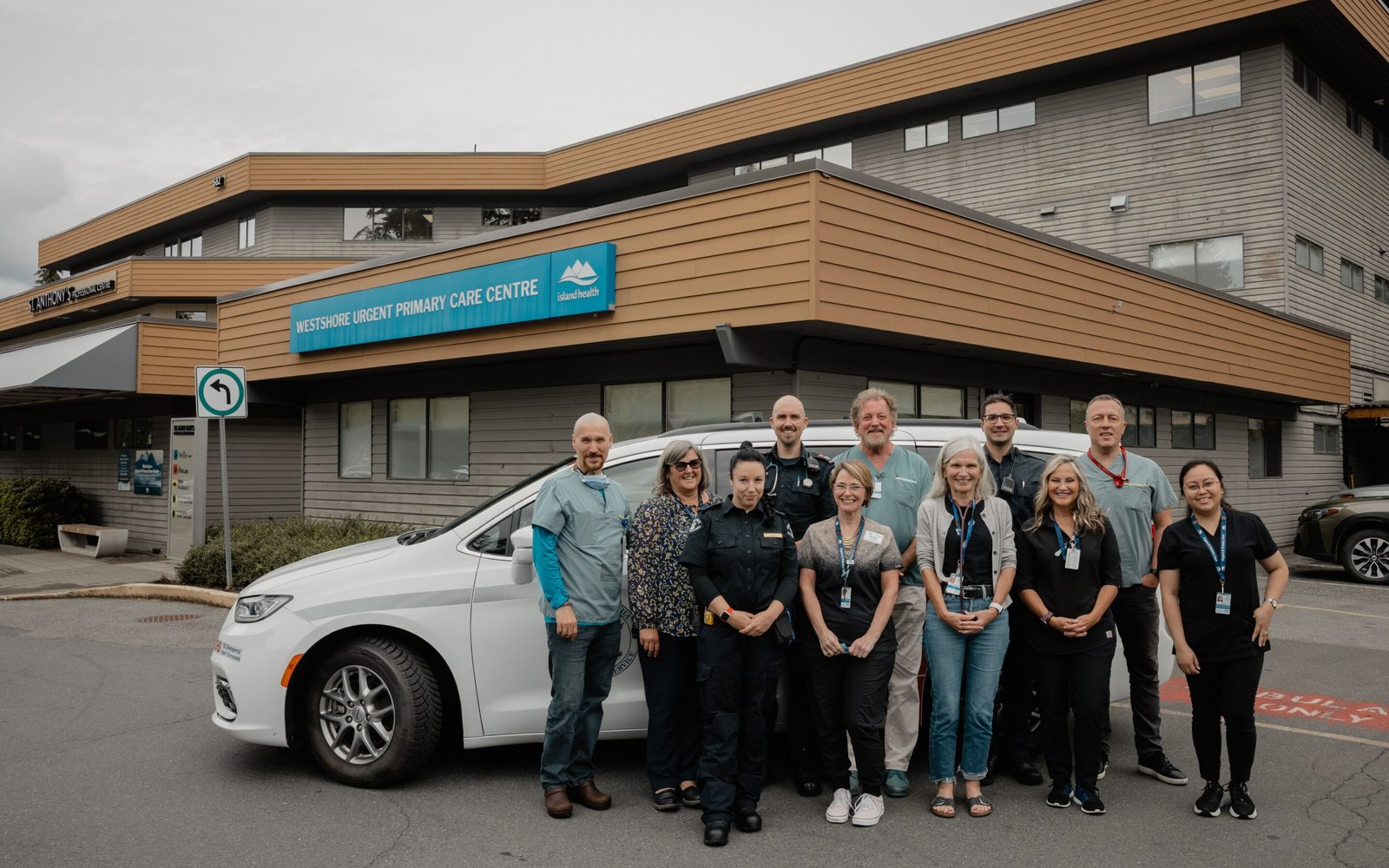Focused currently on South Vancouver Island, this innovative initiative has potential to expand if successful.
A transformative collaboration between Island Health and BC Emergency Health Services (BCEHS), which manages the BC Ambulance Service, has established new pathways for patients who do not need emergency department (ED) care.
Link and Referral Units (LARUs) are specialized paramedics in minivans who assess and treat 911 patients with non-urgent conditions. These patients often benefit from care at Urgent and Primary Care Centres (UPCCs) rather than EDs. Currently, six UPCCs in Victoria are part of this partnership, with discussions ongoing for expansion into Nanaimo.
“The primary objective for LARU paramedics is to connect non-urgent 911 patients with the most suitable care, which could be a UPCC,” said Kayla Welwood, Manager, Low Acuity and Integrated Care at BC Emergency Health Services. “There are numerous exceptional services beyond emergency departments, and it’s logical to integrate them whenever possible.”
Launched from a single pilot unit in 2020, LARU has grown to 18 units across the province, including in Victoria and Nanaimo. The LARU/UPCC partnership within Island Health began in May 2024, optimizing care for lower acuity patients in the 911 system. This new UPCC referral partnership also extends to emergency ambulances when appropriate.
“Our traditional model was to transport patients directly to the ED. However, we recognized this approach often isn’t ideal for non-emergency patients,” explained Welwood. “Our revised response model integrates our services into the broader health care system, helping patients receive the right care in the right place. LARU paramedics ensure emergency ambulances remain available for the most urgent cases, while alternate care pathways cater to non-urgent patients. This marks a significant shift from the 911 response model of over 50 years ago.”
For South Island and Nanaimo patients dialing 911, the process begins with triage by Emergency Medical Call-Takers (EMCTs) in the BCEHS dispatch centre. If further evaluation is needed, Secondary Triage paramedics in the dispatch centre may contact the patient for additional information. If the case meets LARU guidelines, a LARU paramedic is dispatched to provide a comprehensive assessment and discuss care options with the patient, which may include making an appointment at a UPCC and providing transportation there.
“It’s gratifying to spend more time with patients, listen to their concerns, and utilize my skills for thorough assessments,” said Anthony Hayer, a LARU paramedic with 16 years of experience. “Collaborating with UPCCs enhances outcomes for lower acuity patients.”
“Innovations in health care are crucial. Supporting patients and emergency departments through resource optimization is excellent,” noted Antony Neale, a registered nurse at the Westshore UPCC. “I’m enthusiastic about further expanding this partnership.”
Dr. Kimberley Cameron, a physician at the Westshore UPCC, highlighted the benefits of this program for lower acuity patients. “This initiative provides patients with timely, appropriate care,” she said. “Over time, our collaboration with LARU teams can reduce the number of patients transported to emergency departments.”
Since its inception in May 2024, the partnership has transported 84 patients to UPCCs in Greater Victoria. One tourist, for instance, was treated at a UPCC for an injury instead of visiting a local ED. LARU paramedic Tamara Tulloch, with 14 years of experience, described the positive impact of this care pathway, emphasizing the reduced anxiety for patients avoiding hospital visits.
LARU paramedics consistently receive positive feedback from patients, who appreciate the personalized care. “Our goal is to improve the patient experience,” said LARU paramedic Derek Gytenbeek, with over 5 years of experience. “We value the open dialogues with UPCC staff, discussing improvements for the health care system.”
Cathy Edwards, Manager at Westshore UPCC, stressed the importance of these conversations. “We’ve developed strong relationships with LARU paramedics and BC Ambulance Service, united in providing the right care in the right place for our shared patients.”
As the program grows, health care providers view it as a vital component of Island Health and the broader BC health care system. “We’re excited to contribute to this legacy,” said Tulloch. “It represents the evolution of health care delivery, and we at BCEHS are proud to be part of the solution.”
Patients should continue scheduling appointments for non-urgent medical concerns directly with UPCCs and call 911 in medical emergencies.










